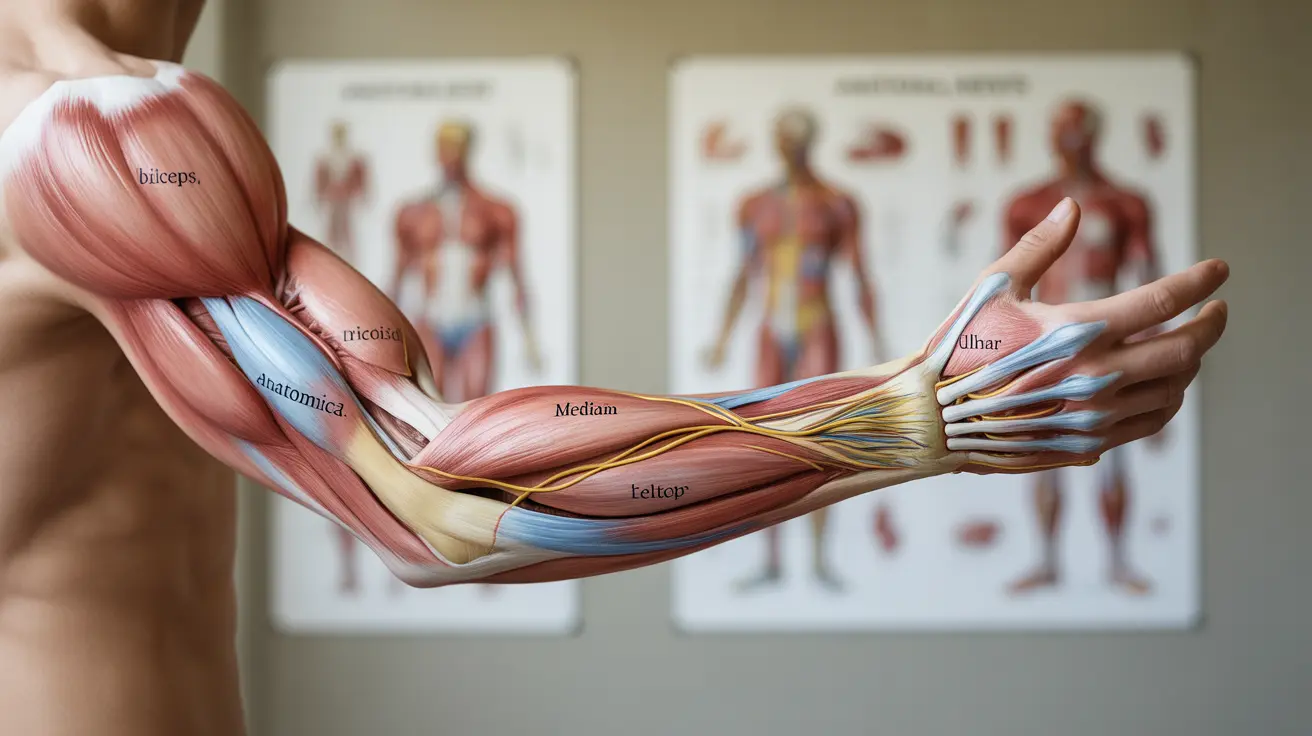Arm pain can significantly impact your daily activities and quality of life, ranging from mild discomfort to severe, debilitating pain. Whether it's caused by injury, overuse, or underlying medical conditions, understanding the various causes and appropriate treatment options is crucial for effective management.
This comprehensive guide will help you identify common causes of arm pain, recognize warning signs that require immediate medical attention, and explore various treatment approaches to find relief.
Common Causes of Arm Pain
Arm pain can stem from various sources, each with distinct characteristics and treatment requirements:
Musculoskeletal Causes
Common muscle and bone-related causes include:
- Sprains and strains
- Tendinitis
- Rotator cuff injuries
- Tennis or golfer's elbow
- Broken bones or fractures
- Bursitis
Nerve-Related Issues
Nerve compression or damage can lead to arm pain through:
- Carpal tunnel syndrome
- Cervical radiculopathy (pinched nerve in neck)
- Peripheral neuropathy
- Thoracic outlet syndrome
Cardiovascular Concerns
Sometimes arm pain, particularly in the left arm, can indicate serious heart conditions:
- Heart attack
- Angina
- Poor circulation
Warning Signs and Emergency Symptoms
Certain symptoms accompanying arm pain warrant immediate medical attention:
- Sudden, severe pain in the left arm with chest pressure
- Difficulty breathing
- Dizziness or lightheadedness
- Weakness or numbness in the arm
- Visible deformity after injury
- Severe swelling or redness
Diagnosis Process
Healthcare providers typically use several methods to diagnose the cause of arm pain:
Physical Examination
Your doctor will assess:
- Range of motion
- Strength
- Sensation
- Reflexes
- Areas of tenderness or swelling
Diagnostic Tests
Common tests may include:
- X-rays
- MRI scans
- CT scans
- Nerve conduction studies
- Blood tests
- Electrocardiogram (if heart-related causes are suspected)
Treatment Options
Treatment approaches vary depending on the underlying cause:
Conservative Treatment
Initial treatment often includes:
- Rest and activity modification
- Ice or heat therapy
- Over-the-counter pain medications
- Compression and elevation
- Physical therapy exercises
Medical Interventions
More severe cases might require:
- Prescription medications
- Corticosteroid injections
- Surgery (in specific cases)
- Specialized physical therapy
- Occupational therapy
Prevention Strategies
To reduce the risk of arm pain:
- Practice proper ergonomics
- Take regular breaks during repetitive activities
- Maintain good posture
- Perform stretching exercises
- Stay physically active
- Use proper lifting techniques
Frequently Asked Questions
What are the most common causes of arm pain and how can I identify them?
The most common causes include muscle strains, tendinitis, and nerve compression. You can identify them through the type of pain (sharp, dull, or burning), timing of symptoms (constant or activity-related), and location of the pain. Muscle strains typically cause aching pain that worsens with movement, while nerve issues often cause burning or tingling sensations.
When should I seek emergency care for arm pain, especially if it might be related to a heart attack?
Seek immediate medical attention if you experience left arm pain accompanied by chest pressure, shortness of breath, sweating, nausea, or jaw pain. These symptoms, particularly in combination, could indicate a heart attack. Don't wait to see if symptoms improve - call emergency services immediately.
How is arm pain diagnosed and what tests might my doctor order?
Diagnosis typically begins with a physical examination and detailed medical history. Your doctor may order imaging tests like X-rays, MRI, or CT scans to visualize bones and soft tissues. Additional tests might include nerve conduction studies for nerve-related pain or blood tests and ECG if heart problems are suspected.
What treatments are available for arm pain caused by overuse, injury, or inflammation?
Treatment options include rest, ice/heat therapy, over-the-counter pain medications, and physical therapy. More severe cases might require prescription medications, corticosteroid injections, or surgery. The specific treatment plan depends on the underlying cause and severity of symptoms.
Can nerve problems like pinched nerves or carpal tunnel syndrome cause arm pain and what symptoms should I look for?
Yes, nerve problems commonly cause arm pain. Look for symptoms like burning or tingling sensations, numbness, weakness, or pain that radiates along the path of the nerve. Carpal tunnel syndrome typically affects the wrist and hand, while pinched nerves in the neck can cause pain radiating down the arm.




